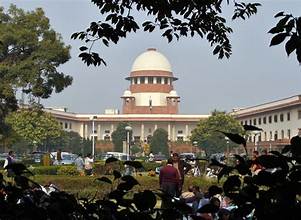The Supreme Court on Tuesday ordered a stay on coercive action against YouTuber Savukku Shankar in all 17 FIRs filed against him.
The Bench led by Chief Justice of India DY Chandrachud passed the order on a petition filed by Shankar, challenging his detention under the Goondas Act by the Tamil Nadu police on August 13, days after the Madras High Court quashed earlier orders passed under the preventive detention law.
The Apex Court also directed the authorities to put on record the complete chart of all FIRs filed against Shankar.
Advocate Balaji Srinivasan, appearing for the YouTuber, apprised the Bench that the latest order was issued after the Madras High Court quashed an earlier detention order against Shankar.
He contended that Shankar had already got bail in all cases. However, the Tamil Nadu police again put him under preventive detention. He said the YouTuber would challenge the August 13 order also.
Reports said that Shankar was put under preventive detention on allegations that contraband (ganja) was found in his possession.
The earlier detention order passed in May had cited grounds, such as defamatory comments allegedly made by Shankar against women in an interview given to another YouTuber Felix Jerald, for his arrest.
On May 24, two judges of the Madras High Court disagreed on whether his detention should be quashed or not. Later, a third judge of the High Court termed the split verdict an aberration and referred the case to another Division Bench of the High Court.
Shankar’s mother, A Kamala, approached the Supreme Court seeking her son’s release.
On July 18, the Apex Court ordered Shankar’s interim release till Kamala’s plea was finally decided by the High Court.
The High Court Bench of Justice MS Ramesh and Justice Sunder Mohan later recused from hearing the matter, citing objectionable comments made by Kamala against the Court in her transfer petition filed before the Supreme Court.
On August 9, the Bench of Justice SM Subramaniam and Justice V Sivagnanam quashed the May detention order against Shankar, after more than three months of his detention.2


